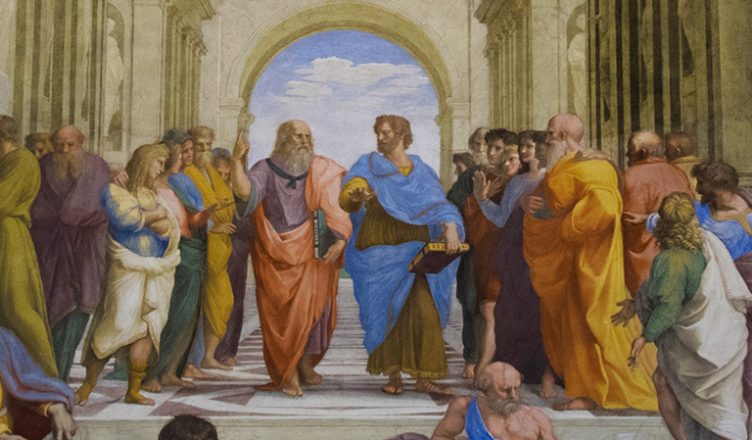The confluence of ancient wisdom and modern faith manifests profoundly when one considers the teachings of Plato in relation to the Bahá’í Faith. As humanity journeys through the intricate tapestry of existence, the revelations from both the Platonic tradition and the Bahá’í teachings offer a plethora of insights that encourage contemplation, transformation, and intellectual growth. This exploration elucidates the resonances between generational philosophies, prompting a re-evaluation of truth, morality, and the nature of the human experience.
Plato, a luminary of ancient Greek philosophy, is renowned for his dialectical method and his contemplations on the essence of reality, virtue, and the ideal state. His allegories, particularly that of the Cave, encapsulate the philosophical quest for enlightenment. In contrast, the Bahá’í Faith, articulated in the 19th century by Bahá’u’lláh, advocates for the oneness of humanity, universal peace, and the intrinsic connection of all religions. Both paradigms offer profound insights that can inform contemporary ethical paradigms and social constructs.
One of the most striking parallels between Plato’s teachings and the Bahá’í Faith is the quest for knowledge and its transformative power. Plato posited that knowledge is not merely the accumulation of facts but an awakening from ignorance. The Enlightenment, he suggested, enables individuals to transcend the shadows of their perceptions, leading to a more profound understanding of the forms of truth. Similarly, the Bahá’í teachings emphasize the quest for truth as a fundamental obligation of every individual. Bahá’u’lláh proclaimed that “The earth is but one country, and mankind its citizens,” prompting adherents to engage in a pursuit of knowledge that transcends cultural and religious boundaries.
In Plato’s philosophy, the role of the philosopher-king epitomizes the ideal leader who possesses wisdom and virtues necessary to govern justly. This archetype not only nurtures intellectual capacity but encourages a deep sense of responsibility towards society. The Bahá’í Faith similarly promotes the concept of consultative governance and the elevation of individuals towards leadership based on moral integrity and selflessness. Both perspectives assert that governance must be rooted in ethical principles and that those who are entrusted with authority must be equipped with both knowledge and compassion.
The notion of duality is pervasive in both traditions. Plato’s Theory of Forms elucidates a distinction between the impermanent physical world and the immutable realm of ideas—truths that exist beyond empirical perception. In a comparable vein, the Bahá’í teachings delineate a distinction between the material and spiritual realms, where the latter serves as the ultimate goal of human endeavor. This dichotomy invites believers and thinkers alike to ponder the essence of existence, leading to a shift in perspective that transcends mundane preoccupations.
Moreover, the dialectical method advocated by Plato encourages the examination of differing viewpoints as a means of arriving at a more profound understanding of truth. This approach fosters a spirit of inquiry—central to personal and collective evolution. The Bahá’í concept of consultation mirrors this process, wherein diverse opinions are woven into a cohesive narrative aimed at progress and unity. This emphasis on collaborative discourse not only cultivates deeper understanding but also promotes the notion of collective responsibility in the pursuit of truth and justice.
An exploration of justice reveals yet another intersection between Platonic ideals and Bahá’í teachings. Plato’s conception of justice as a harmony of the individual’s rational, spirited, and appetitive sections resonates with the Bahá’í assertion that justice is the most conspicuous manifestation of God. The latter encompasses not only fairness but also equity and compassion, asserting that the establishment of justice is a divine imperative to which all are called. The intersection of these philosophies presents both a challenge and an opportunity: to cultivate a society where justice is not merely an abstract concept but a tangible reality.
In contemplating the nature of love, both Plato and the Bahá’í Faith offer nuance to this fundamental human experience. For Plato, love (or Eros) is a driving force toward the pursuit of beauty and truth, culminating in the love of the divine. This notion parallels the Bahá’í understanding of love as the greatest force for transformation, where love for humanity reflects divine love. The interconnectedness emphasized by Bahá’u’lláh expands this concept into an imperative for social cohesion and service to others, urging individuals to embody love in their daily interactions and societal contributions.
The synthesis of ancient wisdom and contemporary principles invites a re-evaluation of societal norms. Plato’s dialogues prompt readers to critically analyze personal beliefs and assumptions, while Bahá’í teachings advocate for a resplendent future marked by unity and peace. Engaging with both frameworks invites individuals to reflect upon their own positions within a broader cosmic narrative, leading to a desire for positive change and the elevation of humanity.
Ultimately, the interplay between Plato’s philosophical inquiries and the Bahá’í ideals serves as a rich source of inspiration. As one delves into these timeless teachings, the promise of a shift in perspective becomes increasingly evident. Such explorations beckon a deeper understanding of oneself and the world, piquing curiosity and inviting individuals to pursue greater truths that unite rather than divide. Embracing these shared legacies yields transformative potential, fostering a new epoch characterized by intellectual rigor, moral fortitude, and enduring compassion.
